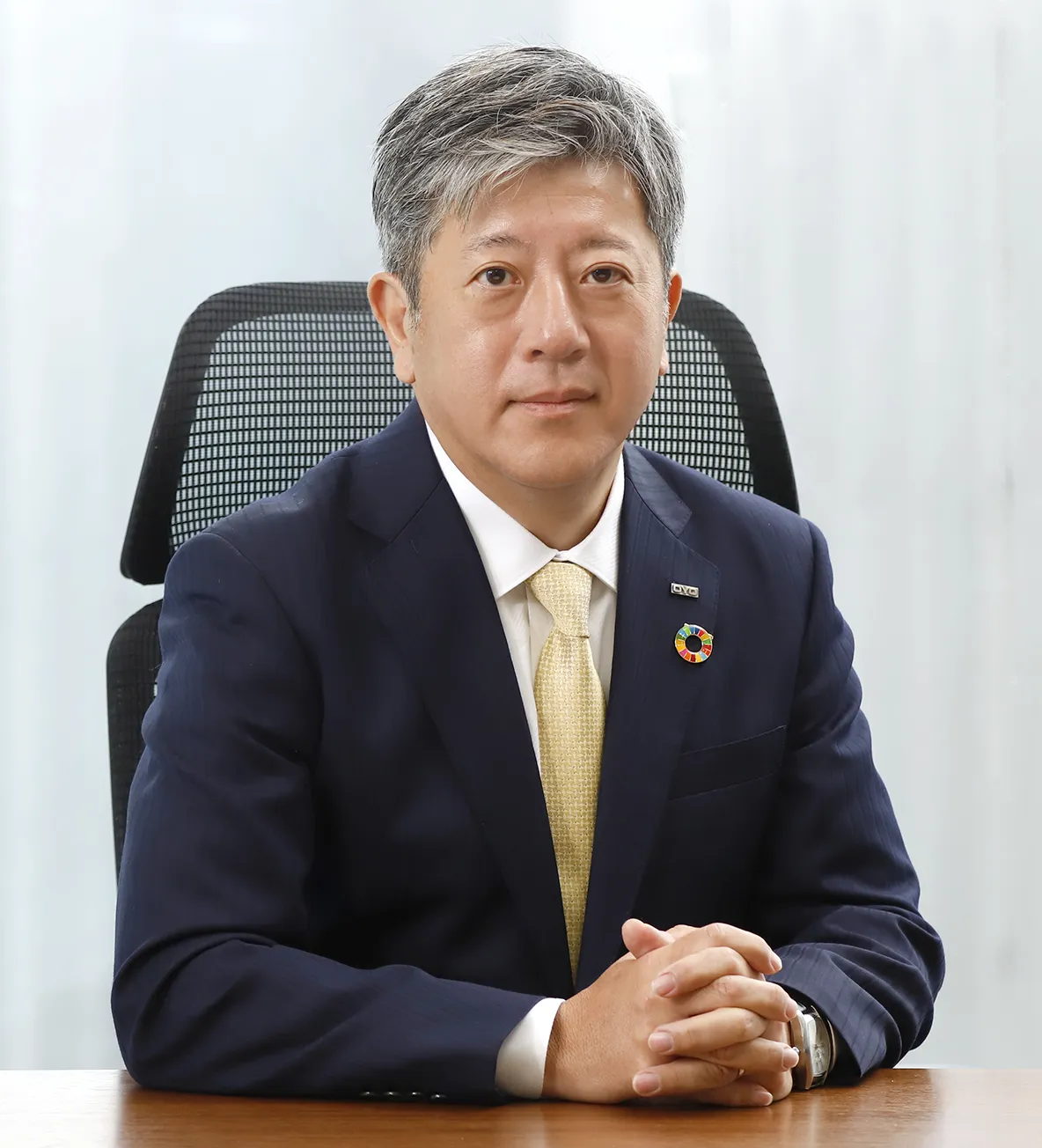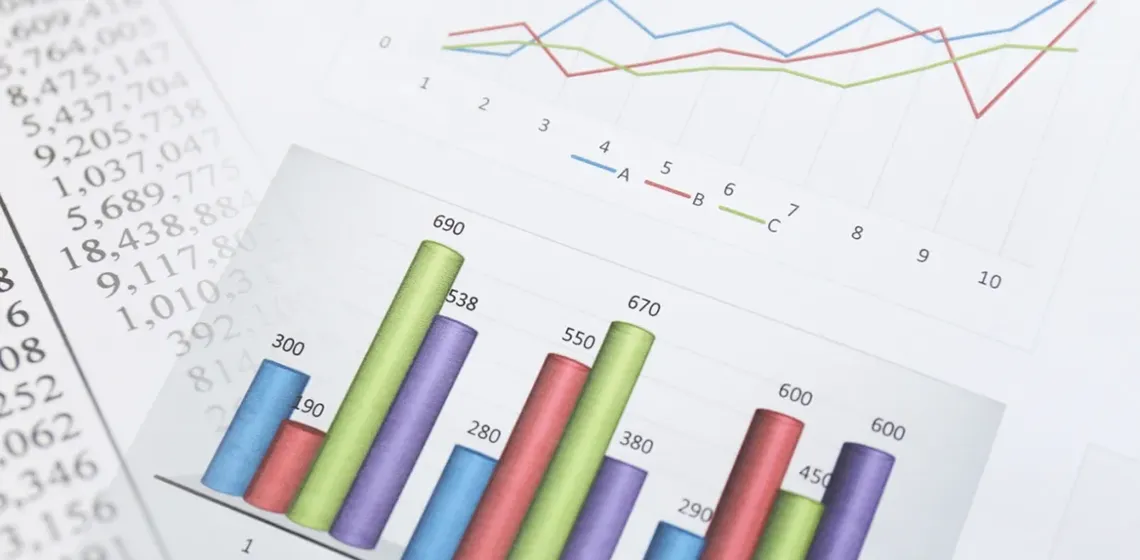To Our Shareholders and Investors
Steady progress in finalizing "structural reforms" and "establishment of a new business style," as well as "building a foundation for the next long-term vision"
"OYO Advance 2023" was a three-year plan aimed at "building a foundation for the next long-term vision" by finalizing "structural reforms" and "establishment of a new business style" based on the long-term management vision "OYO 2020."
First, we focused on promoting "DX-centric innovation strategies" to finish off "structural reforms" and "establishment of a new business style" and invested 5.5 billion yen in innovation investment (DX + R&D) over three years, resulting in an investment of approximately 7.2 billion yen. This helped us make steady progress in, for example, technological development for the "de facto standardization of 3D geotechnical analysis technology," which the OYO Group is working on with an eye on the global market.
In addition, we set an "M&A investment quota" to build a business portfolio with the future management environment in mind (the quota was increased from the initial 7 billion yen to 12 billion yen over three years). We also successfully acquired Geosmart International Pte. Ltd. in Singapore in October 2022 and OX, Inc. (an AI business) in January 2023 and made them subsidiaries.
Second, moving toward "building a foundation for the next long-term vision," we set the basic policy of "active promotion of sustainable management" and stepped up efforts for the new value creation process. All businesses in which the OYO Group operates are directly linked to the realization of a sustainable society, and providing solutions in each market leads to resolving social issues. During the three years of "OYO Advance 2023," we promoted mindset reforms, so to speak, to make this perspective a common understanding among all OYO Group employees and even integrate it into the corporate culture. At the same time, we worked to improve the organizations and systems essential for sustainable management, such as identifying materiality and building a sustainability promotion system.
As explained above, we promoted the previous medium-term business plan to achieve two main objectives, and I believe we steadily produced results leading up to the next fiscal year and beyond.
Achieving net sales targets with challenges remaining in the operating margin
On the other hand, in terms of business performance (on a consolidated basis), I am aware that we faced distinct challenges with profits.
First, net sales increased for the third consecutive year and reached 65.6 billion yen against the final year (fiscal 2023) target of 62 billion yen. I believe the main reason for the increase in sales and achievement of the target is that the "key services," which we established for each of our four business segments, have been steadily accepted in markets. The most notable achievement was made in "offshore wind power generation support services," which grew from 2.4 billion yen before the launch of the previous medium-term business plan (fiscal 2020) to over 7 billion yen in fiscal 2023. "Hazard mapping sensor solutions" and "disaster waste disposal plan-related services" have also each grown into businesses worth over 1 billion yen. "Underground visualization services" is the only business that did not reach the target, but it has grown to over 400 million yen in three years since it was fully launched in fiscal 2021.
Next, the operating income margin ended at a low level of 4.3% compared with the final year (fiscal 2023) target of 8%. Looking at long-term trends, it bottomed out in fiscal 2017 and then rebounded, but it has shifted downward in the last two years.
Furthermore, we set ROE of 5% as a financial target for capital efficiency and exceeded it in the final year (fiscal 2023) at 5.6%. This was due to a significant 121.5% year-on-year increase in profit (net income attributable to owners of parent), which is mainly attributable to the posting of "income taxes-deferred (slightly over 1 billion yen)" related to deferred tax assets, etc. If this impact is excluded, the ROE would have remained at just over 4%, so in reality, I think we fell short of the target.
Formulating the envisioned future in 2030 from the perspective of pursuing materiality
"OYO Sustainability Vision 2030" was prepared with careful consideration over the course of more than a year, while working closely with the executives who will lead the next generation.
The management that the OYO Group is aiming for is ultimately directed toward our Management Philosophy and Management Vision, with Materiality defined as the critical issues to be addressed in realizing these two elements. Formulated under this philosophy system of the OYO Group, "OYO Sustainability Vision 2030" derives our envisioned future based on how we will address these material issues. Among these issues, we have particularly focused on including "materiality in business activities," because we think of it as the most important issue that signifies the future direction of the OYO Group's business. In other words, the OYO Group will "Find the Best Answer to the Future of People and the Earth" through its unique solution-providing technologies and services toward 2030, the target year of the SDGs. Through these business activities, the OYO Group will improve social and environmental value and business profitability, contributing to the realization of a sustainable society.
As a specific corporate image, we have set out three requirements for our envisioned future: 1. Be a company that aims to become a 100-year company with sustainable growth; 2. Be a company that contributes to solving social issues; and 3. Be a company that fosters a pleasant work environment and job satisfaction. As KPIs to measure the degree to which we have achieved these three elements, we have set up a total of seven performance targets and sustainability targets. In this long-term vision, we aim to achieve these seven KPIs as milestones in the pursuit of our philosophy system (Management Philosophy, Management Vision, and Materiality).
Formulating three basic policies based on the OYO Group's internal and external issues
To realize our long-term vision, "OYO Sustainability Vision 2030," we are proceeding with the "OYO Medium- Term Business Plan 2026" as an action plan for the first phase. In pursuing the three requirements for our envisioned future described in this long-term vision, we first identified the issues the OYO Group needs to address.
For internal issues, looking back over a total of 14 years of the previous long-term management vision and medium-term business plan, we recognize that we must address the two important issues of "improving business profitability" and "asset and capital efficiency" to achieve "sustainable growth to become a 100- year company." Also, to enhance our value as "a company that contributes to solving social issues" and "a company that fosters a pleasant work environment and job satisfaction," "strengthening the management foundation based mainly on sustainability" will continue to be an important ongoing issue.
Additionally, there are external issues exerting a major multifaceted impact on these three internal issues. As the shift to a sustainable society progresses globally, the increasing severity of natural disasters and the expansion of renewable energy demand are proceeding like two sides of the same coin. Combined with aging social infrastructure, national resilience from the perspective of natural disaster prevention and mitigation has become an urgent need in countries worldwide. In addition, as the labor force decreases, diversity and work- style reforms are becoming increasingly important. Against this backdrop, "human capital management" that maximizes the value of human resources to make the most of them is attracting attention.
After identifying these internal and external issues, we formulated three basic policies in the "OYO Medium-Term Business Plan 2026": "1. Promote Segment Strategy;" "2. Optimize the Balance Sheet;" and "3. Strengthen Sustainable Management."
Promoting a "Segment Strategy" to address the key issue of "improving business profitability"
The first basic policy, "Promote Segment Strategy," is aimed at addressing the key issue of "improving business profitability."
In fiscal 2018, the OYO Group reorganized its segments by business field to proactively propose solutions required in the market, and has engaged in organizational and business activities in four segments for six years. As a result, our sales shifted from "passive" to "proposal-based." As seen in the fact that the net sales composition ratio of the private sector has steadily increased relative to the public sector (56% of domestic sales are from the private sector), we have steadily progressed in the "establishment of a new business style."
At the same time, however, new issues emerged that needed to be resolved.
The first issue was the "expansion of international business." International business was previously included in each segment. Due to increasing global demand for the OYO Group's technological capabilities, the resulting aggressive overseas M&A activities, and other factors, the ratio of overseas net sales has gradually increased, reaching a level of about 25% of total net sales in fiscal 2023. Fundamentally, there is a significant difference between domestic and international business in all aspects, including business environment, business risks, and business activities. As international business has grown to such a large scale, properly managing and operating international operations within segments under the domestic business became extremely difficult. Therefore, we decided to separate the organizations and segments from those of the domestic business and reorganize them into a new "International" segment.
The second issue was "inconsistency between the actual customer contact and segmentation." Previously, the four segments were classified according to the business fields that the OYO Group should explore, and the organizations were organized based on these classifications. However, since the OYO Group's business, both in the public and private sectors, is based on construction-related business, the reality was that in many cases the OYO Group was making individual sales approaches to a single customer contact in each of the four different organizations. This was creating significant waste in terms of productivity and efficiency as an organization. This segment reorganization was an answer to these issues.
In response to these two major issues, we reorganized our business into three new organizations or segments to align with market characteristics: "Disaster Prevention and Infrastructure;" "Environment and Energy;" and "International." We will formulate and implement the appropriate strategy for each segment based on their revenues, market characteristics, and market environment. By doing so, while improving business efficiency and profitability, we will review our products and services and enhance our planning, development, and sales capabilities from the standpoint of maximizing group synergies.
Optimizing the balance sheet to address the key issue of improving capital efficiency
The second basic policy, "Optimize Balance Sheet," aims to address the key issue of improving capital efficiency. The previous medium-term business plan adopted a financial and capital strategy focused on both growth investment and shareholder returns, and we will continue to promote this strategy in the new medium- term business plan. With regard to growth investment (innovation development investment + human capital investment + capital investment), we plan to spend more over the three years of the medium-term business plan than we did in the previous medium-term plan. We have also revised our shareholder return policy to a consolidated dividends payout ratio of 50% or more and a DOE of 2% or more, planning for dividends and share buybacks that exceed the previous medium-term plan.
Furthermore, as we continue to aggressively pursue M&A, we have changed our policy to use interest- bearing debt for future M&A investments instead of our previous policy of using cash reserves to cover all growth investments, shareholder returns, and M&A investment quota. This will allow us to allocate cash reserves primarily to growth investments and shareholder returns and to make more leveraged M&A investments, which we believe will lead to improved capital efficiency and even higher corporate value.
Strengthen sustainable management as the core management foundation for the future
The third basic policy, "Strengthen Sustainable Management," addresses the ongoing issue of strengthening the management foundation based mainly on sustainability. We will work on the issue in three aspects: human capital strategy and work-style reforms; response to climate change risks; and governance and compliance.
For human capital strategy and work-style reforms, from the viewpoint of human capital management based on the idea that "people are capital," we will strive to expand our talent portfolio in line with the segment strategy and foster a pleasant work environment and job satisfaction. Over the next three years, we will first strengthen our activities with a budget of 1 billion yen for human capital investment and work to acquire and develop human resources. In the era when society demands diverse values, acquiring and developing wide-ranging talent is critical. We believe that diversity, including mid-career recruitment, promotion of women's active participation, and utilization of global human resources, is one of the factors in strengthening an organization for the future.
As for the response to climate change risks, we will contribute to the formation of a decarbonized society through organizational and business activities. We aim to reduce emissions by 3,000 t-CO2 or more by 2026 by promoting direct GHG reduction efforts through organizational activities, such as expanding the use of renewable energy, promoting energy-saving measures, and switching to EVs, across the OYO Group. As for decarbonization efforts through business activities (indirect reduction), we will contribute to GHG emissions reduction to a greater extent by developing and deploying low-carbon technologies and proactively working on decarbonization projects.
Governance and compliance are management foundations essential for sustainable growth in the future. In particular, Group Governance is becoming increasingly important as we look ahead to the global expansion of future business. Strengthening Information Security is also critical in promoting DX and evolving as an intellectual information service business. We will continue to accurately analyze risks and opportunities and build an optimal governance system.
We at the OYO Group help support communities' lifestyles and economic activities in various fields on a global scale, including disaster prevention, infrastructure, the natural environment, natural resources, and energy. Because many of our activities are conducted in places where people cannot see, we would like to continue to update our stakeholders on some of our activities to gain their understanding and support. The OYO Group is committed to addressing a variety of issues to realize a sustainable society. We will continue to take on challenges to meet the expectations of our stakeholders.
July 2024
Representative Director, President & CEO
Hirofumi Amano



